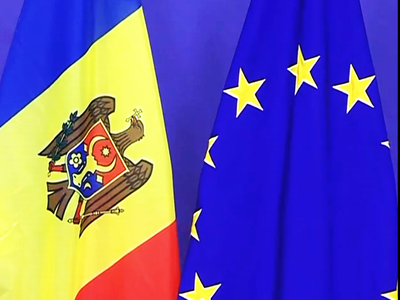
The Council of the European Union conclusions on the Republic of Moldova
Council conclusions on the Republic of Moldova, 15/02/2016.
1. The Council reaffirms its commitment to strengthening the political association and economic integration between the European Union and the Republic of Moldova. It also confirms that all Member States have ratified the Association Agreement.
2. The Council closely follows the situation in the Republic of Moldova. The European Union is convinced that the current difficulties can be solved only via constructive dialogue among all political forces in the country, which takes into account the expectations of the people of the Republic of Moldova. Tangible results on reforms are needed to restore the trust.
3. To this end, the Council calls for an accelerated implementation of the Association Agenda. The European Union remains committed to supporting the reform efforts in order to bring about the benefits of the Association Agreement, including the Deep and Comprehensive Free Trade Area, to the citizens of the Republic of Moldova.
4. The Government of the Republic of Moldova should prioritise reforms aimed at addressing the politicisation of state institutions, systemic corruption, public administration reform aimed inter alia at enhancing the effectiveness of regulatory bodies, transparency and accountability in the management of public finances as well as with regard to policy making.
5. The Council calls on the authorities of the Republic of Moldova to strengthen corporate governance in the financial sector, as well as the independence and the supervisory powers of the National Bank and of the National Commission for Financial Markets. It stresses in particular the need to appoint the Governor of the National Bank on the basis of a non-politicised, transparent and credible process.
6. The Council calls on the authorities of the Republic of Moldova to ensure that the cases of fraud that affected its banking system in 2014 are made subject to a thorough, impartial investigation, also with a view to recovering the diverted funds and to bringing those responsible to justice. It urges the authorities to undertake audits of the three banks under special supervision through high quality reports and appropriate follow-up action, in close collaboration with the IMF as well as consider a screening of the systemic risks in the banking sector. All appropriate legislative measures should be adopted, including alignment of the legal framework to counter money-laundering with the EU legislation, in order to mitigate the risk of further bank frauds.
7. The Council is concerned about the lack of independence of the judiciary and law enforcement agencies. It underlines the importance of implementing reforms which ensure the independence, effectiveness, transparency and accountability of the judiciary and of the anti-corruption institutions. The reform of the prosecution service as well as the fight against corruption within the judiciary should be addressed as priority matters, including through merit-based and transparent recruitment and promotion of judges.
8. The Council urges the Government of the Republic of Moldova to take steps to create a level-playing field for business and restore an attractive and stable investment climate, and to improve transparency and investment conditions in the energy sector. It further highlights the importance of following the obligations under the Association Agreement and the Energy Community Treaty, to adopt the relevant draft laws currently under consideration, and ensure implementation.
9. The Council reiterates the EU's readiness to assist the Republic of Moldova including through technical assistance and project support, such as peer-review missions and high level advisers. The resumption of budget support disbursements could be envisaged once political, financial and macro-economic conditions are fulfilled, including respect for budgetary oversight and transparency principles. The Council calls on the Government to inter alia establish a detailed roadmap towards an IMF programme, which is an important element in ensuring that macroeconomic concerns are addressed. The Council welcomes the invitation by the Government of the Republic of Moldova to the IMF to send a mission as soon as possible, so as to rapidly commit to establishing a comprehensive programme of stabilisation and structural reforms.
10. Effective, strategic communication, including in cooperation with civil society and independent media, on the reforms achieved and to be undertaken in the framework of the Association Agreement including its Deep and Comprehensive Free Trade Area, is of key importance to raise awareness among the citizens of the Republic of Moldova about benefits expected from political association and economic integration with the European Union.
11. The European Union welcomes the recent discussions on constitutional reform in the Republic of Moldova with a view to preventing future political deadlock. The European Union also calls on the authorities of the Republic of Moldova to address all OSCE/ODIHR recommendations, especially as regards the transparency of party financing and the accountability of elected candidates.
12. The Council recalls that the freedom of the media is an equally fundamental element of democratic life. It urges the Government of the Republic of Moldova to improve the national legislation in order to limit the concentration of media ownership and guarantee pluralism.
13. The Council welcomes the Republic of Moldova's commitment to handle the Transnistrian settlement process as a key priority, as well as the interest to resume the negotiations as soon as possible, including in the 5+2 format. The Council also welcomes the establishment of a permanent working group for cooperation between the Parliament of the Republic of Moldova and the Gagauz People's Assembly.